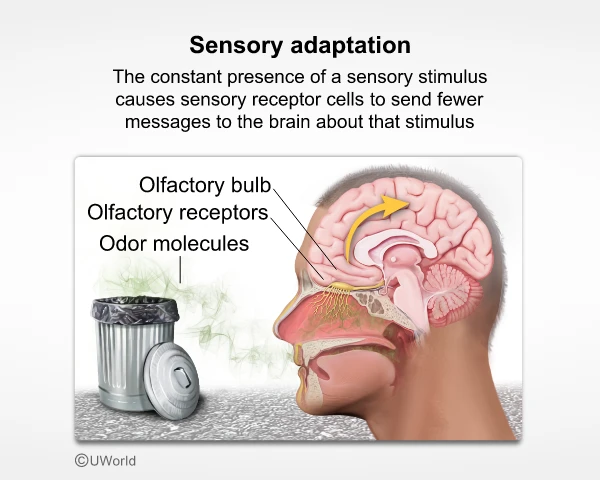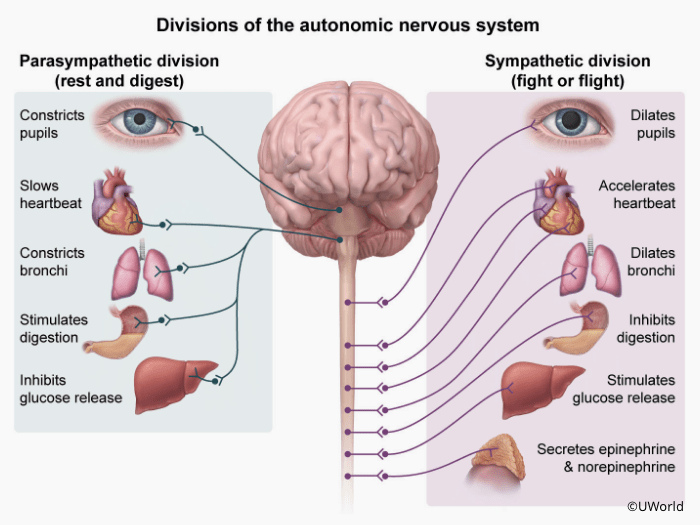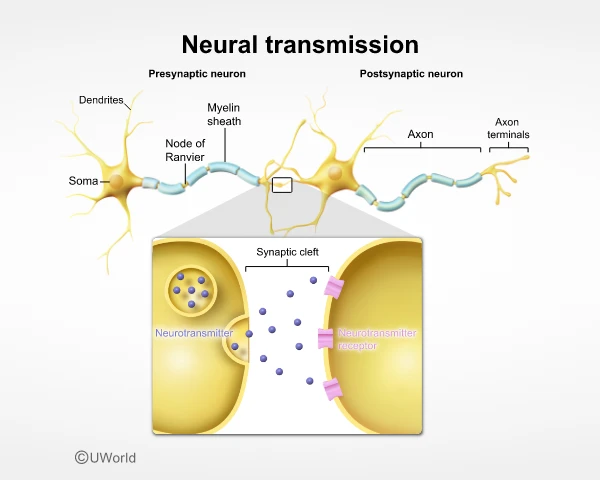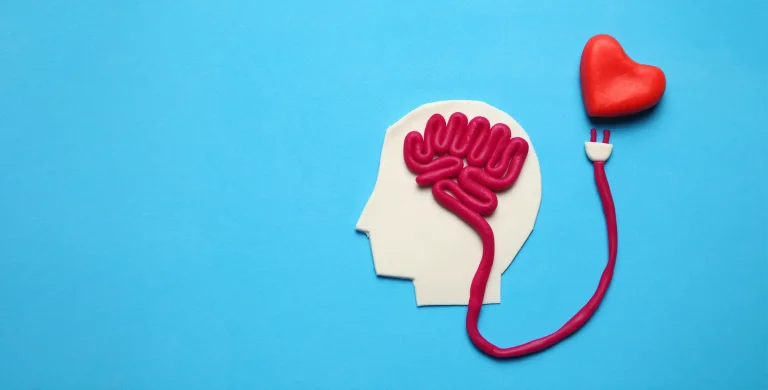AP Psych is 1 of the most popular AP exams students take every year because it is 1 of the most versatile AP courses that can earn you college credit and placement. Taking the AP Psych exam will open doors to numerous career possibilities, and it is 1 of the core courses you will need for various majors.
This exam guide will explore everything you need to know about the AP Psychology exam. We will look at the exam format, its difficulty level, the AP Psych course concepts, and the prerequisites you must know before opting for this course. This invaluable information will help determine whether AP Psychology aligns with your learning aptitude and career aspirations.
What Is AP Psychology Equivalent to, and Who Can Take It?
AP Psychology is considered equivalent to an introductory course on psychology taught in the first year of college. The curriculum for AP Psych introduces students to the systematic and scientific study of behavior and mental processes. The course covers fundamental concepts and theories that have shaped studies of animal and human behavior.
As an AP Psychology student, you'll explore key concepts and theories associated with the biological bases of behavior, cognition, development and learning, social psychology, personality, and much more. This course will familiarize you with the research methods and statistics used to evaluate psychological hypotheses. Unlike most AP courses, there are no prerequisites for AP Psychology. All you need is curiosity, an openness to learning about experiments, concepts, and theories, and a bit of dedication to master the course!
Before exploring AP Psychology's course concepts and units, let's look at a few questions students often have about the AP Psych course and exam.
How Does the College Board® Classify AP Psychology — as a Science or Social Science Course?
The College Board now considers AP Psychology both a science and a social science. Traditionally, psychology has been classified as a social science or social studies course. However, following recommendations from the American Psychological Association, the College Board has updated its classification. To allow for greater flexibility and credit opportunities, AP Psychology is now listed as a science course in addition to its listing as a social science. Schools and colleges can continue to classify it under either category and teacher licensure should support both subject areas.
Do Colleges Consider AP Psych a Science Subject?
According to the National Science Foundation (NSF), psychology constitutes a science course and is 1 of the core subjects within the STEM (science, technology, engineering, and mathematics) fields. However, depending on the organizational structure of your college, the psychology department may be in either the social science department or the science department. This affiliation determines whether your institution regards AP Psychology as a science or social science course.
Can You Take AP Psychology Without Taking Regular High School Psychology?
Yes, you can. Because AP Psychology has no course prerequisites, you can take it without taking a basic-level psychology class in high school beforehand.

What Is on the AP Psychology Exam?
The first step toward AP Psychology success is knowing what to expect on the exam. This section will discuss the key concepts covered by the course units and then explore the course skills you'll need to master to succeed on the AP Psychology exam.
Remember that knowing the concepts and theories is not enough; you will have to assess a question, use the skills you've learned during the course, and, in the case of FRQs, use them to support your claim. AP Psychology consists of 5 course units and 4 science practices. Let's look at the units' respective weights in the MCQ section of the AP Psychology exam:
| Units | Exam Weight |
|---|---|
| Unit 1: Biological Bases of Behavior | 15%–25% |
| Unit 2: Cognition | 15%–25% |
| Unit 3: Development and Learning | 15%–25% |
| Unit 4: Social Psychology and Personality | 15%–25% |
| Unit 5: Mental and Physical Health | 15%–25% |
These 5 units will take you through a basic introduction to psychology, including key concepts and theories. You will often apply those theories and concepts to practical scenarios.
As you journey through these 5 units, you'll acquire important skills to help you grasp and engage with the subject matter efficiently. You'll need to master 4 skill categories or science practices to ace the AP Psychology exam. Let's look at what those are:
- Concept Application
Use psychological theories, perspectives, research findings, and concepts in practical and analytical contexts. - Research Methods and Design
Assess and differentiate between various qualitative and quantitative research approaches and experimental designs. - Data Interpretation
Analyze and draw conclusions from data presented through graphs, charts, tables, and diagrams in quantitative studies, as well as information described in qualitative research. - Argumentation
Construct well-supported psychological arguments backed by relevant evidence. This skill is only assessed in the free-response section.
Each question you'll get on the exam will require you to use one or more of these skill categories. However, remember to reflect on the major points of each unit as you study the concepts. Knowing the fundamentals of a subject is the core of a solid learning process! Looking for focused review material to strengthen your weak areas? Our AP Psychology study guide available in both print and digital formats, is designed to help you master the content that matters most.
It is best to start your prep work with the AP Psychology course and exam description and thoroughly understand the AP Psych course curriculum.
AP Psychology Exam Format
The format for the 2 hours and 40 minutes long AP Psychology exam is straightforward and consists of 2 sections: multiple-choice (MCQ) and free-response (FRQ). Suppose you wonder, "How many questions are on the AP Psych exam?". In that case, the following table will help you with the number of questions and time duration per section:
| Section | Question Type | No. of Questions | Time per Section | Exam Weighting |
|---|---|---|---|---|
| Section I | MCQ | 75 | 90 mins | 66.7% |
| Section II | FRQ | 2 | 70 mins | 33.3% |
In Section I, you'll pick the correct answer from the given answer choices for each question, hence the name: multiple-choice questions. You'll have 1 hour and 30 minutes to answer 75 questions, which means you should aim to complete 1 question per minute on average. This approach will allow you to have 10 minutes remaining at the end of Section I to revise or address any questions you have missed. You will not be penalized for incorrect answers in this section.
In Section II, you'll have to respond to 2 questions with a written response. These questions require you to assess the question, analyze psychological research studies, and substantiate your claim based on concrete evidence and theories. To split your time in this section evenly between the 2 questions, try to complete each question within 35 minutes.
Check out the AP Psychology exam format page to understand the structure of the exam.
The College Board converts your raw composite score to the AP scaling system and presents the AP Psychology exam score on a scale of 1 to 5. Section I holds most of the weight, accounting for 66.7% of the exam score, while Section II contributes 33.3%. Scoring a 3, 4, or 5 on the exam may result in earning an Advanced Placement® and/or credit, depending on the AP Credit Policy of your college. To learn more about the scoring method, review the AP Psychology scoring guide.

Why Take AP Psychology?
AP Psychology is 1 of the most versatile AP courses. A good AP Psych score can result in college credits that apply to many college majors in the sciences, business, or humanities. Many disciplines, like anthropology, ethnic studies, criminology, business administration, and language sciences, require a course like AP Psychology within their degree plan.
Perhaps for these reasons, AP Psychology is 1 of the most popular AP courses, with 320,164 students taking the AP Psych exam in 2024 and more than 61.7% securing a score of 3 or above. Note that the minimum AP Psychology exam score required for your college may be a 3, 4, or 5, so it is important to check the AP policy of the school you plan to attend.
How many college credits do you get with a score of 3, 4, or 5 on the AP Psychology exam?
The minimum credit score (e.g., a 3, 4, or 5) and the number of credits you earn for your AP Psychology exam score vary with each college. Be sure to check with the colleges you're applying to for the latest updates on their AP credit policy so you know which score will count at your school.
Is AP Psychology good for pre-med students?
A semester of college-level intro psychology is required to enter several medical schools in the United States. Although AP Psychology scores don't necessarily translate into course credit for medical school, AP Psych provides good groundwork for pre-med preparation. Always check with your future college and medical school to ensure your credits apply to your field of study.
AP Psych is a rewarding course to pursue if you are interested in a course that will apply to many majors in college.
Because it is equivalent to an elementary college-level course, AP Psychology requires rigor and dedication on your part to succeed. It's all about weighing the pros and cons to determine if a subject fits you.
You might still ask, “Is AP Psychology worth it?” Let's discuss some significant benefits of taking AP Psychology that could change your college and career plans. Read on!
- Prepare a Solid Foundation in Psychology for College
Taking AP Psychology exposes you to more in-depth course content than a standard high school psychology course. This exposure to a college-level introductory course during high school will facilitate your transition from high school to the first year of college. As a result, enrolling in AP Psych will better prepare you for the upcoming challenges and align you with your future career goals.
- Boost Your College Applications
Taking a rigorous course like AP Psychology reflects your college readiness. If you do well in AP courses, college admissions officers will give your college application greater weight. Succeeding in this course also shows that you have put in the effort and have the skills and brains to take challenging college courses, significantly increasing your chances of being selected.
- Earn College Credits
While each college has its own criteria for what AP exam score is necessary for college credit (e.g., a 3, 4, or 5), AP Psychology is generally similar to first-year college psychology. Most universities across the United States grant course credit for acceptable AP scores. Each college creates its own AP credit policy, so it's a good idea to research how much credit you will receive at each institution to which you apply.
- Strengthen Your Transcript
When computing your GPA, many high schools assign more weight to AP courses. Be sure to check with your school to determine how they factor your AP classes into your overall GPA.
- Save Time and Money
If you do well on the AP Psychology exam, you may be eligible to forgo introductory psychology in college and instead enroll in more advanced psychology courses. You can save on college costs if you take and do well in multiple AP courses.
As a bonus, studies show students who achieve a 3 or better on AP exams have higher academic success and graduation rates than their non-AP classmates. -
Widen Your Career Options
Taking AP Psychology in high school helps prepare you for college-level psychology. It will also open up other fields of study, including criminology, anthropology, medicine, business studies, and many others. Psychology is a subject commonly required in many majors.
AP Psychology is a good general course option if you are unsure about your specialization or future professional objectives. This course can assist you in keeping your options open if you are interested in choosing among various related disciplines.
Although these advantages make AP Psych an obvious choice for high school students, you should still consider whether AP Psychology is your subject. Let's look at some tips to help you decide!
Should I Take AP Psychology?
If you are still unsure whether AP Psychology is a good fit for you and if you should take it, ask yourself:
-
Do you love studying a subject that applies to real-world situations?
Many students enjoy AP Psychology because it lends itself to real-life applications. Far from simply memorizing concepts, in AP Psych, you will learn how concepts and theories apply to everyday situations.
- What are your future goals?
As we've mentioned, AP Psych applies to many fields and future careers. Psychology can be useful if you pursue a major in the humanities, business, education, or sciences. You might consider pursuing a career in 1 of the many related fields to make greater use of the hard work you put in while learning AP Psychology.
- Are you skilled at reading, analyzing, and interpreting data?
While being passionate about a subject is essential, it's also necessary to have an aptitude for it and excel at it. If analyzing and interpreting data is something you excel at, then AP Psych could be a good fit for you.
- How many other AP classes are you taking? How rigorous are they?
AP Psychology requires significant time, effort, and rigor in studying. If you are already taking another AP subject but want to take one more, AP Psych may be a good option, but be careful not to overwork yourself by taking too many AP subjects.
You could also ask your teachers and seniors for the previous year's course materials to determine if AP Psychology is right for you.
Is AP Psychology Hard?
If you are wondering, “How hard is AP Psychology?” know that there's no easy answer to that. AP Psych requires grit, dedication, and effort to succeed, just like every other AP subject. Remember that all AP courses are college-level introductory courses that require more work than typical high school classes. AP Psych will be especially difficult if you don't complete your homework!
Is AP Psychology harder than an Introduction to Psychology course in college?
AP Psychology is equivalent to an introductory-level college psychology course. Therefore, it is not more challenging than the introductory college psychology course.

AP Psychology Study Tips
Like in any other AP subject, doing well in AP Psychology requires a deep understanding of the concepts taught in the course. If you plan to take AP Psychology, below are a few tips to help you:
- Prepare a detailed study schedule well in advance.
Repetition aids retention. We recommend setting aside time each week to review the topics you've covered.
- Take notes while studying for your high school course.
Instead of passively reading, engage with the material through techniques like summarizing, note-taking, and flashcards.
- Familiarize yourself with the question format through practice exams.
As you practice more, you become more comfortable with the questions and how to approach them.
Are you curious to learn more tips and tricks? Visit our page for more guidance on studying and learning how to ace the AP Psychology exam!
While self-studying for your AP exams from reference books is beneficial, enrolling in AP prep classes, either online or offline, empowers you to receive immediate answers to your questions and make swift progress through your subject. At UWorld, we will help guide you through your AP Psychology exam preparation with a systematic, step-by-step approach. We work hard to get you to the point where you can quickly answer test questions that test complex concepts and theories.
Try an AP Psychology practice test to get a taste of an actual AP exam! The best part? It's a free trial! For a more structured and guided learning experience, check out our AP Psychology Online Course. It offers targeted practice, detailed explanations, and tools to help you ace the exam with confidence.
Frequently Asked Questions (FAQs)
What should I bring to the AP Psychology exam?
You may bring the following items to the exam on exam day:
- A fully charged testing device along with its charging cable
- Login credentials for your College Board account
- Pens or pencils for note-taking on the scratch paper provided by the school
- Optional: External mouse
- External keyboard: For students using a tablet or iPad. Not allowed for students testing on a laptop.
Where can I find past AP Psychology exam questions?
You can find the AP Psychology free-response questions the College Board released on their official website.
When is the 2025 AP Psychology Exam?
The 2025 AP Psychology exam will be on Friday, May 16, 2025, at 12:00 p.m. local time.
What happens if you fail the AP Psychology exam?
You can attend college whether you pass or fail the exam. If you fail an AP exam, you will have a harder time getting into the best universities in the country. While universities do not use success on AP exams as the only reason for acceptance or rejection, it does play a significant role in admissions.
When do students usually take AP Psychology?
Students typically take AP Psychology in their junior or senior year of high school (i.e., in the 11th or 12th grade).
How much does the AP Psychology exam cost?
For students in the United States, Canada, and U.S. territories, the AP Psychology exam costs $99. You may be subject to additional fees if you are an international student. Check out our AP Exam Registration, Cost, and Eligibility page to learn more about AP exam costs, late-testing fees, and other additional fees or rebates that you can get for AP exams.
Read More About the AP Psychology Exam
Looking for the AP Psychology exam format? This article clearly describes the AP Psychology exam format — including sections, question categories, and more!
AP Psychology CEDA summary of the AP Psychology Course Description can save you a lot of time! Get in-depth info on the exam units, topics, and key exam skills in this easy-to-read CED.
AP Psychology Scoring GuideWant to know how AP Psychology scoring works? Here is our simple guide on the scoring pattern and score distribution for the AP Psychology exam, designed to assist you in determining your position.
AP Psychology Study Plan & TipsAre you seeking expert advice on getting a perfect AP Psych score? Check out our guide and resources from an expert to help you ace the AP Psychology exam.
Best AP Psychology Prep Course ReviewSearching for top AP Psychology prep courses? Read this review to compare the best courses and choose the perfect one for your success.
Best AP Psychology Study Guide ComparisonCompare the best AP Psychology study guides! See how Kaplan, Barron's, and Princeton Review stack up against UWorld for comprehensive exam prep.
References
- College Board. (n.d.). AP Psychology. AP Central. Retrieved April 02, 2025, from https://apcentral.collegeboard.org/courses/ap-psychology
- College Board. (2020). AP course overview – AP Psychology. AP Central. Retrieved April 02, 2025, from https://apcentral.collegeboard.org/media/pdf/ap-psychology-course-overview.pdf
- College Board. (2024). AP Psychology course and exam description. AP Central. Retrieved April 02, 2025, from https://apcentral.collegeboard.org/media/pdf/ap-psychology-course-and-exam-description.pdf
- College Board. (2024). AP score distributions. AP Students. Retrieved April 02, 2025, from https://apstudents.collegeboard.org/about-ap-scores/score-distributions
- College Board. (n.d.). 2024 AP exam fees. AP Students. Retrieved April 02, 2025, from https://apstudents.collegeboard.org/exam-policies-guidelines/exam-fees
- College Board. (n.d.). 2024 AP exam dates. AP Central. Retrieved April 02, 2025, from https://apcentral.collegeboard.org/exam-administration-ordering-scores/exam-dates

